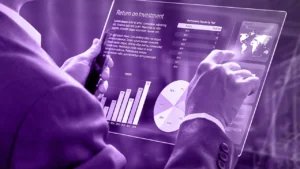Introduction: Why AML Screening Matters More Than Ever
Money laundering is not only a financial crime but also a global threat that fuels terrorism, corruption, and organized crime. Regulators across the world are tightening compliance requirements, and businesses especially in the financial services sector are under pressure to adopt robust AML screening solutions.
At the core of an effective system are three critical pillars: sanctions lists, politically exposed persons (PEPs), and adverse media checks. Together, these ensure that organizations can detect and mitigate risks before they become compliance breaches or reputational disasters.
1. Sanctions Screening: The First Line of Defense
What Are Sanctions?
Sanctions are restrictions imposed by governments or international bodies, such as the UN, EU, OFAC, and HM Treasury, against individuals, entities, or even entire countries. These restrictions are designed to prevent illegal activities like financing terrorism or weapons trafficking.
Why Sanctions Screening Is Critical
If a business unknowingly engages with a sanctioned entity, the consequences can be severe including hefty fines, regulatory penalties, and loss of operating licenses.
How an AML Screening Solution Helps
- Real-Time Database Checks – Automatically scan customer and business data against global sanctions lists.
- Continuous Monitoring – Since sanctions lists are updated regularly, monitoring must be ongoing, not just at onboarding.
- Cross-Border Coverage – For international businesses, it’s essential to integrate multiple global sanction sources.
2. PEP Screening: Managing Higher-Risk Profiles
Who Are PEPs?
Politically Exposed Persons (PEPs) are individuals who hold prominent public positions or have close associations with government officials. Their influence makes them more vulnerable to bribery, corruption, and financial crime.
Why PEP Screening Matters
Dealing with PEPs isn’t illegal. However, businesses must conduct enhanced due diligence to ensure that transactions are legitimate and transparent. Failure to do so could expose an organization to corruption scandals and regulatory action.
How an AML Screening Solution Simplifies PEP Checks
- Tiered Risk Categorization – Classifying PEPs by risk level (domestic, foreign, close associates, family members).
- Enhanced Due Diligence (EDD) – Collecting deeper insights into the individual’s source of wealth and business ties.
- Automated Alerts – Notifying compliance teams of PEP-related matches in real time.
3. Adverse Media Screening: The Reputation Shield
What Is Adverse Media?
Adverse media refers to any negative news about individuals or companies that could signal involvement in financial crime, fraud, human rights violations, or environmental scandals.
Why It Matters for AML Compliance
Traditional sanctions and PEP lists can miss emerging risks. For example, a company may not yet be sanctioned but might be reported in credible media for illegal activities.
How an AML Screening Solution Enhances Adverse Media Monitoring
- AI-Driven Media Scans – Automating searches across thousands of credible news sources in multiple languages.
- Real-Time Alerts – Identifying risks before they escalate into legal liabilities.
- Reputation Management – Ensuring businesses don’t partner with entities tied to scandals or crime.
The Combined Power of the Three Pillars
While each pillar is powerful on its own, true compliance strength comes from integrating sanctions, PEPs, and adverse media into one unified AML framework. This ensures:
- Holistic Risk Visibility – Catching red flags across multiple sources.
- Regulatory Compliance – Meeting global AML directives and FATF guidelines.
- Operational Efficiency – Reducing false positives through AI and automation.
For financial institutions, fintech companies, real estate firms, and even professional services in high-risk industries, this integrated approach is non-negotiable in 2025 and beyond.
Best Practices for Implementing AML Screening
- Adopt Automated Technology – Manual checks are slow and error-prone. Automation ensures speed and accuracy.
- Use Global Coverage Databases – Compliance is international; your solution should cover all major jurisdictions.
- Apply Risk-Based Approaches – Tailor screening depth to the customer’s risk level.
- Train Compliance Teams – Technology is powerful, but human expertise is vital for handling complex cases.
- Ensure Ongoing Monitoring – Screening isn’t a one-time process; risks evolve, and monitoring must be continuous.
Conclusion: Building Stronger Compliance in 2025
The fight against money laundering requires a proactive and comprehensive approach. By focusing on the three pillars of effective AML screening sanctions, PEPs, and adverse media organizations can not only comply with regulations but also protect themselves from financial crime and reputational harm.
Adopting an advanced AML screening solution is no longer optional; it’s a necessity for any business committed to integrity, trust, and long-term growth.






